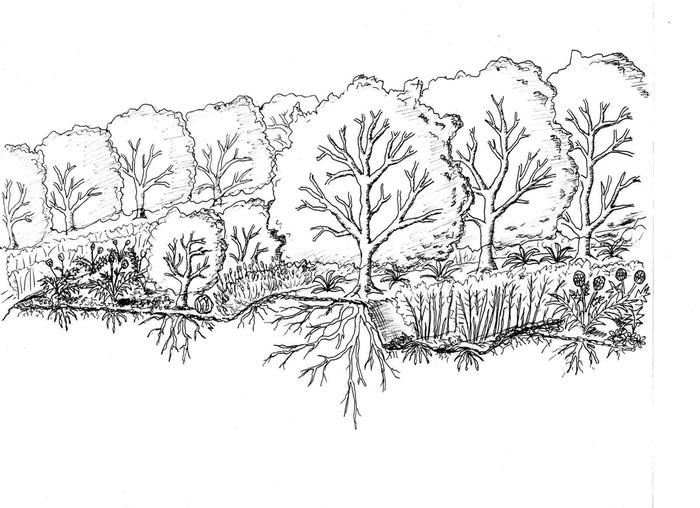

Spray the inside of the silo with spray on insulation, then you wont get the condensation between the straw and the metal.
I am concerned with structural and permit issues and think I am going to plan the house all out and have an architect make blueprints and sign on the design. Will this help in getting a permit?

hard to live up to this definition if the sun boils away all the water on the planet, nevermind that entropy is nipping at our heels. still, we may as well shoot to make the next billion years as pleasant as possible.
I was reading in that county they required a permit for pond digging over X amount of yards. Since I do not own heavy equipment the idea was to do it the old fashioned way. Since this land is semi-desert I would assume building swales would be similar as the pond situation in regards to a permit.

What do you think "organic" means? Or "sustainable"?
Context makes a lot of difference.
It really bothers me when products are sold as accessories to the dream that mid-century style consumerist culture might go on forever.


Perhaps what I'm talking about is not permaculture as you would have it defined, but I would disagree. If a piece of land is designed using keyline plows, keyline design, dams that doulbe as acquacuture, sustainable horticultural techniques, alley cropping, kugelkultur beds, etc., is it not at least somewhat permaculture? At which point does it go from being not permaculture to actual permaculture? How many techniques, tools and knowledge must I incorporate from your personal permaculture "canon" to qualify as being a true believer?
Thank you for this, and I agree that we are on the verge of upheavals that will fundamentally change our unsustainable lifestyle. To me, that sounds like a fantastic business opportunity, and being out in front of the curve with a sustainable business premised on and inspired by permaculture is a fantastic way to capitalize on this.

So, please people, I don't want a discussion of why we shouldn't do it. Your objections are duly noted. Presuming these objections are going to be disregarded, how could it practically be implicated?
I just don't believe that the world, as it is currently arranged, is going to return to producing its own food on an individual level. And that is the benefit of the division of labour: I don't need to spend all my time growing my own food, so I have time to pursue other things. That aspect of human behaviour is not going to change anytime soon, so we're going to need to find better ways of feeding the world.